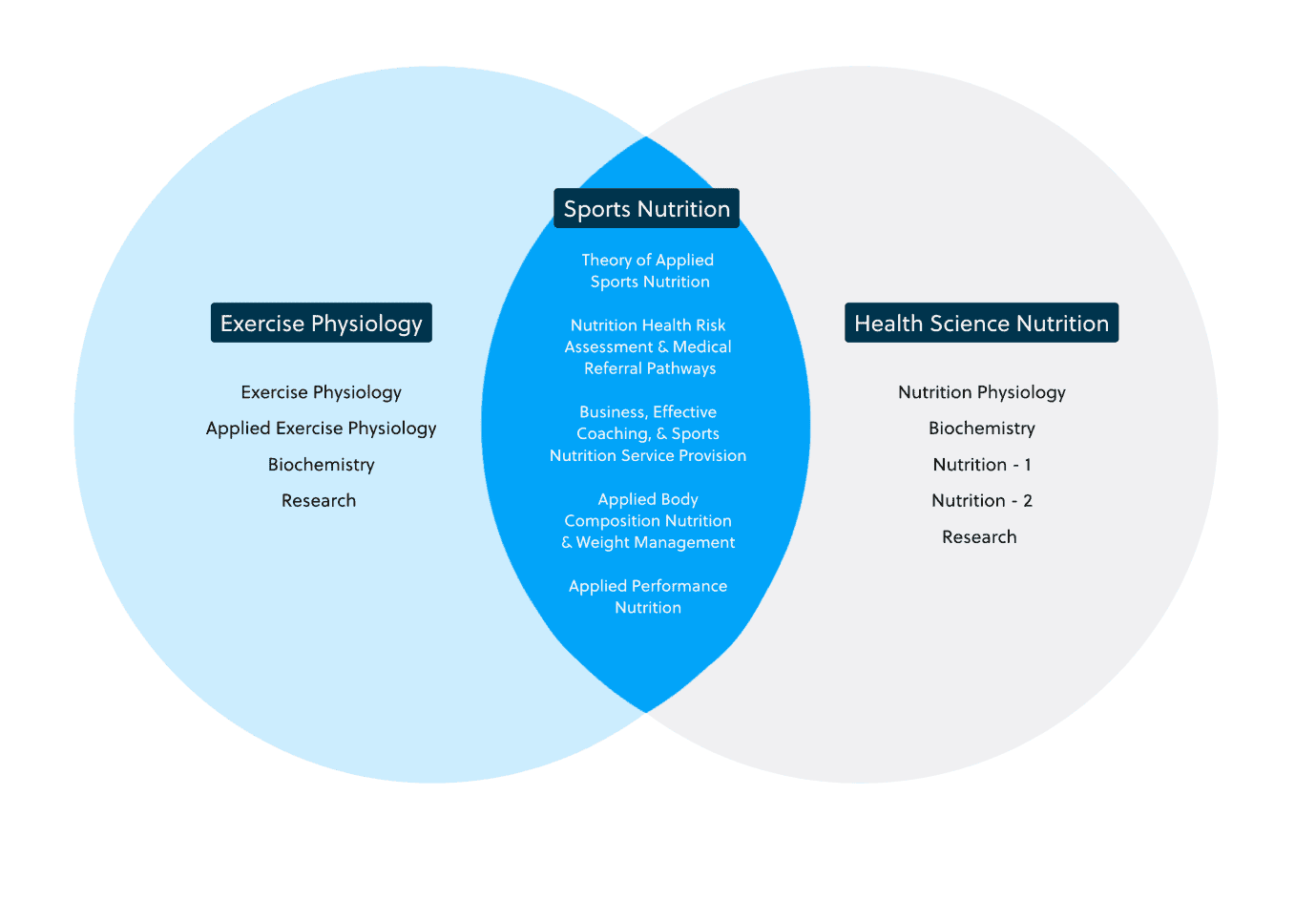The gold standard in foundational sports nutrition education.
Do you want a fulfilling and high paying income stream? By becoming an accredited sports nutritionist you can make a great living by making a difference.

Based on member data, on average our students make $135,000 a year full-time and $56,000 a year part time.
Increase Your Income And Coach Clients From Anywhere In The World By Becoming An Accredited & Fully Insured Sports Nutritionist
Who The Certification Is For

Fitness Professionals
Personal trainers and coaches who want to increase their income, get better results for their clients and be able to coach clients from anywhere.

Recent Graduates
People who’ve graduated in a sports science, nutrition or exercise degree that want to complete their education and become legally insured.

University Students
People currently studying who want to graduate with paying clients, and find out if they like the industry before committing to 4+ years of study.

Newcomers
People who want a fulfilling and high-paying career that love the idea of helping people achieve their health goes through nutrition.
The Certificate has been designed to meet the minimum requirements for practising in Sports Nutrition. Students who complete this program become eligible to register, insure, and practice as Accredited Sports Nutritionists provisionally so they can understand what a career in nutrition looks like and the capacity with which they wish to practice.
The majority of graduates and professionals will be working in some form of private practice, which is heavily dependent on your skills as a service provider to find, convert and help clients achieve their goals.
Rather than more traditional models, we recognise that spending 4-5 years, and $50,000+ to become qualified and practise, only to find out that private practice isn’t for them (which is the majority of work in applied sciences and dietetics), isn’t the ideal pathway to take.
We appreciate that not everyone wants to make a profession with private practice and don’t intend to sell you on a one-size-fits-all pipe dream. However, if you do feel like this is the career for you, and you want to make it your primary career path, you will need further study after 3 years.
About The Certificate
Our Certificate is the only non-university undergraduate program that provides the minimum standard for subjects that relate to effective competence as a Sports Nutritionist.
If you are looking at practising in this profession, then you should only be considering university programs or the Sports Nutrition Association Certificate (or one of the recognised affiliates).
The course is entirely online, runs for 24-26 weeks, and has set due dates. The program is regularly assessed by national and international education and qualification framework auditors/compliance officers, as well as regular review from postgraduate subject matter experts.
4 core units
15 knowledge assessments
87 lectures + 20 additional learning videos
2 textbooks (required for non-university students)
9 practical, real-world case study assignments
4 practical demonstration assessments


SNA is dedicated to setting a global standard for sports nutrition education. In 2017, we recognised a challenge: national qualification frameworks varied significantly from country to country (not including the large majority of those who had no framework in sports nutrition), making it difficult to ensure consistent quality and recognition of credentials across different countries and regions.
To address this, SNA in conjunction with global insurers, underwriters, higher & vocational education consultants, and its educational advisory board, developed its own comprehensive education framework that served as the foundation for the first globally approved minimum standard of education for practitioners in the field.
We are now working with the Australian and New Zealand governments to establish the first national framework in sports nutrition education. The plan is for this to become a COS (Commonwealth Internationally Recognised) registered program. Following this, we will be looking to create frameworks and gain additional appropriate qualification frameworks in regions including the United States, Europe, and Asia.
As such, the program is not currently registered with any national framework, and will not register with any framework that does not complement multiple country region recognition (presently, all current frameworks). By establishing this global benchmark, SNA is able to provide a solution for professionals seeking to gain credible and respected qualifications in Sports Nutrition that enable them to practice with full professional endorsement and recognition regardless of where they live or operate.
The Certificate in Applied Sports Nutrition program is a Graduate Certificate equivalent*, as it has undergone rigorous independent assessment by multiple experts in higher & vocational education. Their findings confirm that the content, notional hours, and learning outcomes within the program are at the Graduate Certificate level.
To stay up to date with the national framework establishment process and learn more about how you can support this initiative click here
13 Core Subjects
Accordion Content
Nutrition 1 provides the student with some basic nutrition information around Macro and Micronutrients, food tracking methods and the feasibility of food planning options. This module also includes how to assess, coach and develop nutritional literacy with clients. We also provide information around how to read nutrition labels and the basics of hydration.
Nutrition 2 outlines the nutritional programming models used and principles and models for weight management and body composition changes. Learn how to make a meal plan, utilise diet breaks and re feeds with an evidence based approach. Considerations are made around intentional eating, carbohydrate utilisation, diet flexibility and mental health considerations of diet culture.
Nutrition Physiology explores the areas of digestive physiology and metabolism of nutrients, as well as nutrition and gut health. This module will also look at female specific nutrition periodisation, health biomarkers and Nutrition to help with immunity
Exercise Physiology covers thermodynamics and components of TDEE, the basics of bioenergetics including fuel sources and energy systems, methods of body composition assessment and when they appropriate to implement and applying these bioenergetic principles to exercise in different contexts of fed vs fasted states
Accordion Content
Applied Exercise Physiology provides a practical component to assess the BioEnergetics principles and repetitions in reserve method of RPE. In this module, the student will also learn about how the endocrine system (our hormones) functions & how it interacts within our nutritional and exercise environment, and how to account for the impact of exercise on daily energy expenditure.
The Biochemistry unit covers the concepts of biochemistry, from: the structure of a cell, the function of cellular metabolism and how is dynamically interacts with exercise and nutrition metabolism.
This unit covers Nutritional Health Risk Assessment & Screening, the importance of using, understanding of the scope of practice as a sports nutritionist, and how to refer to allied health specialists. It also delves into why clients with PCOS or Endometriosis are out of scope and require further clinical training, and explore considerations around claims of poor gut health vs actual contraindicated diagnosed gut health pathologies
In this unit, we look at both performance and general health supplements and other ergogenic aids, and explore well ranking position statements around these from well ranking journals. This module will also look at Energy Availability and the symptoms associated with RED-S
The research unit covers the hierarchy of evidence, how to apply critical thinking to evidence, an understanding of the limitations of nutrition science and the implications this may have when communicated on social media. This module will cover how to interpret and apply scientific research into practice as a Sports Nutritionist
Applied Body Composition covers sustainable coaching application, an understanding of obesity and why weight loss may stall for some clients. This unit focuses on ensuring that the student can effectively apply an evidence informed manner with nutritional program for; weight management, weight loss, weight gain, and long term body recomposition case study scenarios.
The Applied Performance Nutrition Unit covers principles and models for performance nutrition methods, considerations which may be made for strength and physique clients, considerations for weight making and post season nutrition strategies, considerations & models for team sport athletes, and considerations for strength, endurance and CrossFit athletes. This unit covers the application of these concepts, ensuring a sound foundational competence in applying the theory.
This unit covers the Sports Nutrition Service provision model. Where to start, depending on career goals, and what phase of service provision experience they are in. Learn about financial and taxation literacy, fundamental Sports Nutrition business and service provision operations. We also cover transitioning from face to face with the sports nutrition model, provide real world lessons around social media and real world marketing to get started with success.
This unit covers the elements of effective coaching behaviour and understanding client actions from a motivation perspective. Specific tools and frameworks such as COM-B, SDT, ACT, and Motivational Interviewing are covered to help you improve your coaching techniques and provide the best service to your clients.
Featuring Lectures By
- Dr Gary Mendoza
Phd, BSc, (Hons), RNutr - Dr Joe Klemczweski
PhD - Dr Shawn Arent
PhD, CSCS’D, FISSN, FACSM, FNAK - Laurin Conlin
B.S, MSc - Dr Zoya Huschtscha
APD, AdvSD - Dr Eric Trexler
PhD
- Dr Cliff Harvey
PhD, DipFit, DipNat
- Danny Lennon
MSc
- Dr Eric Helms
PhD, CSCS
- Dr Gabrielle Fundaro
PhD, CISSN, CHC
- Dr Cameron McDonald
Phd, RD
- Jono Steedman
B.Sc. ExSci, MSc, RD
- Matthew White
BSc & Lead Assessor - Alex Thomas
Founder & President, PGd. Perform. Nutrition - Tyarra Nelso
B.Sc. ExSci, MSc, RD - Dr Reid Reale
Phd, APD/RD - Chris Teasdale
B.Sc. ExSci
Interesting in becoming a Certified Sports Nutritionist? Enquire about enrolling today.
The Roadmap To A Certificate In Applied Sports Nutrition

What Being Registered & Insured Looks Like
Casual Member Annual Revenue
Range: $10-45k
Median: $12,500
(Under 5 Hours)
Part Time Member
Annual Revenue
Range: $25k to $130k
Median: $60,500
(7 to 15 Hours)
Full Time Member Annual Revenue
Range: $70-$250k
Median: $149,000
(Over 16 Hours)
One of the best things about our program is it can suit all types of involvement. As a full-time member you can earn an impressive income, but as a casual or part-time member you can create a rewarding side career with a great work/life balance. By simply working another 5 to 8 hours a week, you can earn an additional $15,000 – $60,000 per year. Note — This data is pulled from 75% of our member database.
Take the first step by applying for our Certificate in Applied Sports Nutrition!
All applicants must complete a short application process, which includes a $599 refundable application fee. Please note that payment of the application fee does not guarantee acceptance into the program. In some cases, applicants may also be required to participate in a formal interview. In the event that your application is unsuccessful, your application fee will be fully refunded.
Complete the form below, and you’ll be directed to the application page to continue your journey!
Choose From Flexible Payment Options
Starting At $5500 (Prices In AUD)
-
7 x Monthly Payments
-
$5943 total (AU)
-
~$6550 (NZ)
-
~$3850 (US)
-
18 x Monthly Payments
-
$6872 total (AU)
-
~$7580 (NZ)
-
~$4450 (US)
Enquire About Enrolling In The Certificate
Dynamic Form — Cert About Page
"*" indicates required fields
Certificate FAQs
Accordion Content
The course is self-paced in that there are no set lecture times or workshops to attend. All lectures are on-demand in our learning platform to go through at a convenient time for you to study.
We recommend 12 – 20+ hours of study per week depending on prior experience.
The course is delivered entirely online with online tutorials delivered by the assessment team when getting close to assessment submission dates. These tutorials are recorded so they can be watched at a later date.
Personally Assigned Assessor Support – You will have your own personally assigned assessor
Support from Industry Experts – All assessors are degree qualified, Openly Accredited professional members who have completed the program
Real World Support – to start practicing with clients. All of our assessors are Permanent Part-Time employees who are currently practicing successfully with clients. They do to give back and believe in the Association’s vision & mission. They aren’t people who need a job and couldn’t cut it in private practice
No, but if you have not attended a sports science university program then additional texts and units are required so that you understand the basic applied sciences.
If you are a non-native English speaking person having an English Literacy (IELTS as an example) score of 5.5 as a minimum to ensure that you will be able to comprehend and effectively learn the english delivered scientific language used to deliver the certificate.
Upon completion you will be eligible to register as an Accredited Sports Nutritionist (see registration and insurance page for further information). As a registered Accredited Sports Nutritionist you are now eligible to take out sports nutritionist specific insurance coverage which our members receive a substantial discount.
These services includes calorie targets and adjustments, macronutrient targets, meal plans, supplementation, weight management and sports performance protocols, and online check-ins and services.

